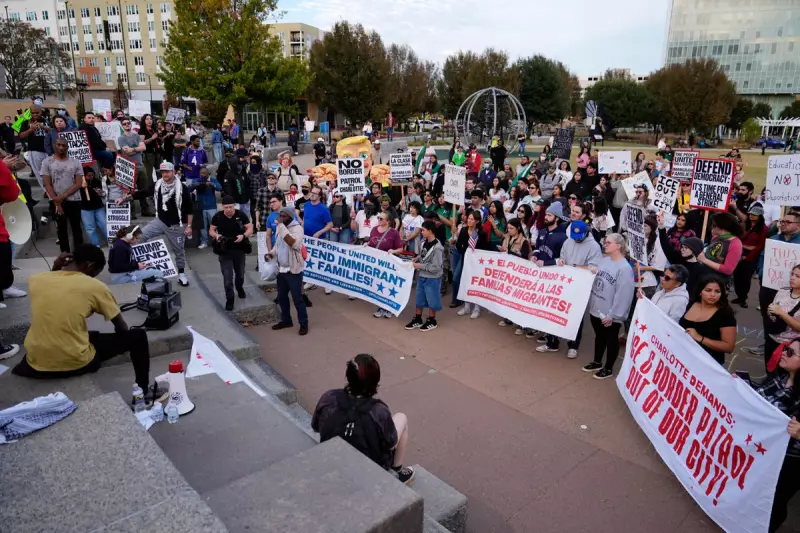
A significant immigration enforcement operation in Charlotte, North Carolina, has resulted in more than 80 arrests, leaving local residents feeling overwhelmed and community leaders expressing alarm. The operation, led by a top Border Patrol commander, has drawn sharp criticism for its tactics and focus areas.
Operation Charlotte's Web Sparks Community Fear
On Sunday, 16 November 2025, a large-scale operation involving hundreds of U.S. Customs and Border Protection (CBP) agents took place in Charlotte, the state's largest city with a population of approximately 950,000 people. The Trump administration has identified this Democratic stronghold as its latest target for an immigration crackdown, which it claims is aimed at combating crime. This justification comes despite crime rates in the area being on a downward trend and facing fierce opposition from local officials.
The commander overseeing the operation, Gregory Bovino, took to social media platform X to document the arrests, which he stated had exceeded 80. He posted photographs of individuals described as "criminal illegal aliens," a term the administration uses for people residing in the U.S. without legal permission who have alleged criminal records. One post highlighted the arrest of a man with a history of alleged drunk driving convictions. "We arrested him, taking him off the streets of Charlotte so he can’t continue to ignore our laws and drive intoxicated on the same roads you and your loved ones are on," Bovino wrote.
Tactics and Locations Draw Heavy Scrutiny
Dubbed "Operation Charlotte's Web," the initiative immediately raised serious questions about its duration, the location of detainees, and the methods employed by federal agents. Reports from residents indicated that encounters with immigration officials were occurring near churches and apartment complexes.
Greg Asciutto, the executive director of the community group CharlotteEast, described the situation as "overwhelming." In an email, he stated, "The past two hours we’ve received countless reports of CBP activity at churches, apartment complexes and a hardware store." The volume of reports was so high it was difficult to quantify.
Echoing these concerns, city council member-elect JD Mazuera Arias condemned the focus on places of worship. "Houses of worship. I mean, that’s just awful," he said. "These are sanctuaries for people who are looking for hope and faith in dark times like these and who no longer can feel safe because of the gross violation of people’s right to worship."
History of Controversy Follows Commander
This is not the first controversial operation led by Commander Bovino. Similar surges in Chicago and Los Angeles under his command triggered a flurry of lawsuits and investigations. These probes centred on questions about the use of force, including the widespread deployment of chemical agents.
Democratic leaders in those cities argued that the presence of federal agents inflamed community tensions and led to violence. Notably, during the Chicago operation, federal agents fatally shot one suburban man during an attempted traffic stop. Bovino and other Trump administration officials have defended the use of force as appropriate for what they describe as growing threats to agents' lives.
The Department of Homeland Security (DHS), which oversees CBP, did not respond to inquiries about the Charlotte arrests. A pattern of limited transparency has been observed, as in Chicago, where the agency provided names and details for only a handful of its more than 3,000 arrests in the metro region from September to the week prior. In several instances during previous operations, U.S. citizens were handcuffed and detained, and dozens of demonstrators were charged during community clashes.





